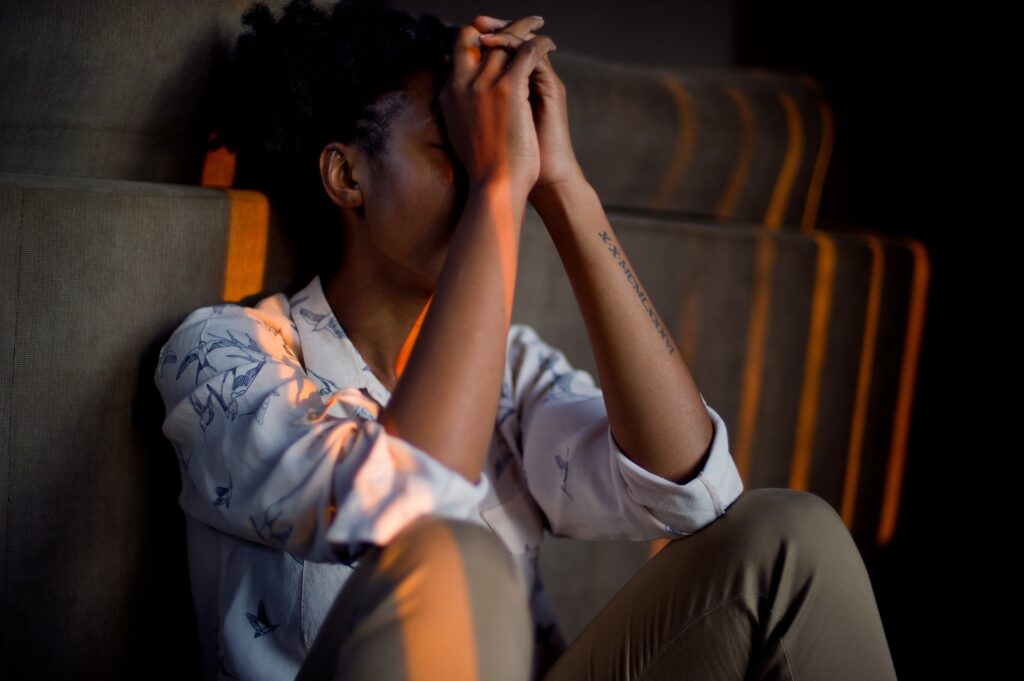Have you ever been so worried and anxious that you cannot eat at all? Have you ever felt nauseous and sick in the stomach when stress has taken over your mind? Do you wonder why does this happen to you? Well, this article will help you comprehend the linkage between anxiety and nausea loss of appetite.
Anxiety is a mental health condition which not only affects the behavior and minds of people but also has physical symptoms. Anxiety and a person’s appetite can be linked. Keep on reading to learn more about this link and possible remedies and treatments for anxiety-related nausea and loss of appetite.
Also Check: Can Anxiety Make You Pass Out?
Anxiety and Nausea Loss of Appetite
You must have known usually people binge eat when they are stressed but some people have the opposite reaction. They start losing their appetite and feel nauseous. One of the most common symptoms of anxiety disorder is loss of desire for food.
Anxiety and nausea loss of appetite are pretty much linked. Many people suffering from anxiety find it difficult and unpleasant to have their meal when they are stressed or nervous. They might also feel nauseated or sick when they try to eat.
Also Check: Can Anxiety Cause Muscle Weakness?
Can anxiety cause loss of appetite?
Yes! Loss of appetite is fairly a common symptom of anxiety disorder. Although some people overeat or indulge in rich foods during moments of severe anxiety, others lose the desire to eat. It’s as though they forget they have to eat as their brain can’t think of anything except what’s causing them stress.
People who lose their appetite are less common than those who binge eat when stressed. But it isn’t a symptom that can be overlooked. It can cause serious health problems and make you feel weak, tired, and skinny.
According to a survey conducted by American Psychlogical Association (2015-16), 31% of people skip meals when they are stressed. In the same survey, 39% of people said they start overeating or eat unhealthy food due to stress.
Also Check: Why Is My Anxiety Worse In The Morning?
How to get appetite back after anxiety?

A person experiencing a lack of appetite while having anxiety needs to take steps to address the issue. There are many potential remedies and treatments he/ she can utilize. Long-term loss of appetite can eventually lead to serious health issues.
Following are a few strategies you can follow to help you get your appetite back after anxiety:
Behavioral Interventions- Many behavioral interventions have also shown positive results in this case. For example, setting an alarm for mealtime will help you remind you to have to eat.
Identifying sources of anxiety- it is important to identify and address the triggers that can cause your anxiety. You should deal with them by working to eliminate or reduce stressors. A therapist might also help in this case.
Practicing Stress Management- you can follow several techniques to effectively reduce or control your anxiety. Deep breathing exercises, meditation, yoga, and mindless can help in stress management.
Having a nutritious, easily digestible diet- Although you might feel you cannot eat much, make sure you eat small meals with essential nutrients. You could have soups with protein and vegetables, or meal replacement shakes or healthy smoothies.
Include easily digestible foods such as rice, steamed vegetables and lean proteins in your diet. Try to avoid foods that are high in sugar, fats, fiber, and salt. Reduce the intake of caffeinated drinks and alcohol.
Healthy lifestyle choices- Although you might find it difficult to exercise when you have anxiety, try to do shorts bursts of gentle exercise. Try to maintain a good sleep cycle and get sufficient sleep. Both physical activity and proper sleep can help in increasing your appetite and reducing anxiety.
Take Professional Help- You should seem professional help from a therapist who will help you in treating your appetite problem and anxiety. Talk to your therapist and he will guide you.
Also Check: Long Term Benzodiazepine Use for Anxiety
I have no appetite and feel sick when I eat
If you lose your appetite and eating makes you sick, you should check in with your doctor. This could either be due to medical problems such as food poisoning or food allergies or constant worry/ depression that might steal away your appetite.
Constant stress and worry can preoccupy a person and he forgets to eat. Bodily sensations can prompt nausea or sick feeling in the gut.
Also Check: Dog Separation Anxiety Medication Over the Counter
Can anxiety make you lose your appetite?
Yes, anxiety can actually make you lose appetite. Some people with anxiety complain of losing their desire to eat even though they haven’t had their last meal.
It has been noticed commonly that anxiety causes a change in the appetite of people. Either they overeat or lose their appetites.
Also Check: What Kind Of Doctor Should I See For Anxiety?
Why does anxiety make me lose my appetite?
Anxiety and nausea loss of appetite have both chemical and psychological associations. It is not uncommon that anxiety presents as physical body sensations, such as a knot in the stomach or a nauseated feeling. This might decrease the feeling of hunger.
Anxiety causes an increased level of cortisol (stress hormone) which can make people lose appetite. This can cause increased acid production in the stomach to help the body rapidly digest the food in preparation for a “fight or flight” situation. This can eventually decrease the appetite.
Psychological factors also play role in decreasing appetite in response to stress. How you think while you’re worried or anxious will definitely impact how you eat.
When a lot is going in your mind, you tend to skip meals as you prioritize other problems over your dietary needs. You forget you have to eat as you do not feel hungry.
Also Check: Depression and anxiety disability benefits
Can anxiety cause loss of appetite for days?
When someone experiences prolonged anxiety, they start losing their desire to eat for some time. Constant worry and stress can distract your mind from feeling hunger.
Most of the time lack of appetite can be fleeting and might change every few hours. However, a few might not feel hungry for a whole day or sometimes more than that. In this medical professionals, help should be taken to overcome this problem.
Also Check: How to get a job with social anxiety
Why am I losing my appetite and feeling sick?

There could be many possible causes for losing appetite and feeling sick. Both have a link with medical and psychological issues. You can be either stressed or have anxiety and start losing your appetite.
Let’s discuss the medical issues. Usually, loss of appetite and nausea are considered to be linked with systemic illnesses such as respiratory infection, gastrointestinal or stomach infection, food poisoning, stomach virus, and many more.
Nausea can also cause loss of appetite. If you feel nauseous while looking at eating a food item, you might lose your appetite. Loss of appetite and nausea associated with systemic illnesses can also present with fever, vomiting, or even diarrhea.
Psychological issues also have a great impact on loss of appetite. If a person is stressed, depressed, or is suffering from anxiety disorder may lose his appetite and feel sick.
Also Check: Can I Get Disability For Depression And Anxiety?
Loss of appetite and nausea COVID

A recent ongoing pandemic caused by COVID-19, a respiratory disease caused by a coronavirus. Although it causes mainly respiratory symptoms, loss of sense of smell and taste and fever, etc., it has been recently found out that it can also cause gastrointestinal symptoms.
According to a recent study by Stanford Medicine, it was found out that a significant number of people who contracted the new strain of the virus also suffered from loss of appetite. They also present with other GI symptoms such as diarrhea, nausea, and vomiting.
Around 39.9% to 50.2% of people reposted losing their appetite, showed by a study in Beijing. Around 1 to 29% of people suffered from nausea while they were sick from the COVID-19.
However, gastrointestinal symptoms are unusual symptoms of COVID-19 as discovered recently. If you experience a sudden loss of appetite and nausea, diarrhea, or vomiting, with or without other COVID-19 symptoms, go for a medical checkup.
Also Check: Generalized anxiety disorder weight loss
Sudden loss of appetite and nausea
When your refrigerator is full of food and you realize you are skipping meals, or not feeling hungry after many hours you have decreased appetite.
Sudden loss of appetite and nausea can be distressing at times. It might either be caused by depression or anxiety, any infection, or gastrointestinal problem.
Also Check: Can Anxiety Make You Pass Out?
Takeaway
Anxiety can kill your desire to eat. Individuals suffering from anxiety are so consumed by their stress that they can’t focus on any other task, even eating. It’s important to understand the association between anxiety and nausea loss of appetite to help you stay healthy.
Once a person addresses his anxiety disorder and goes for proper treatment, he will regain his appetite. Without treatment, it may lead to consequences such as long-term appetite loss and chronic anxiety.



